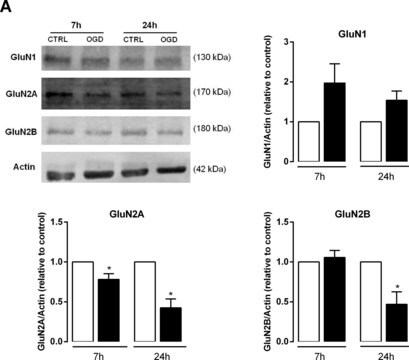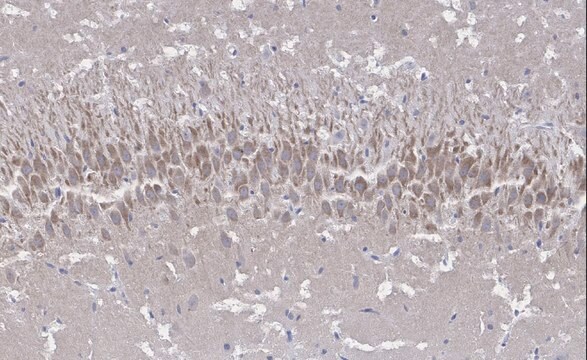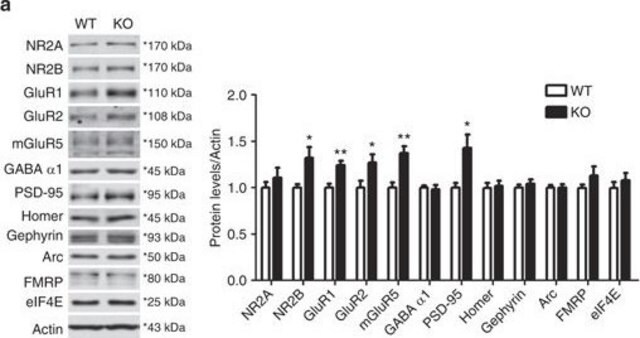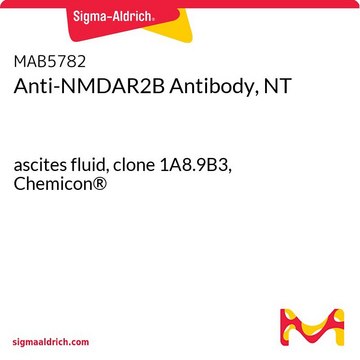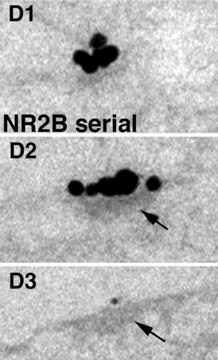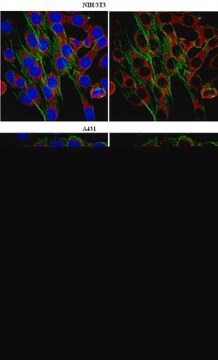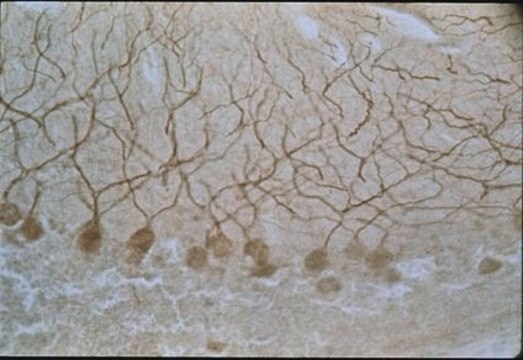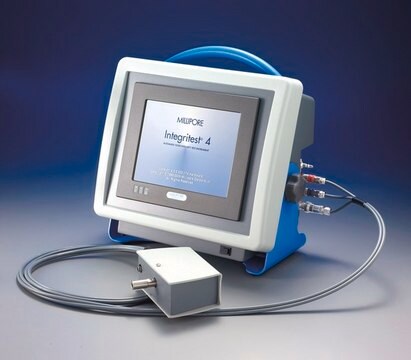MAB5216
Anti-NMDAR2A Antibody
Chemicon®, from mouse
Sinonimo/i:
NR2A
About This Item
Prodotti consigliati
Origine biologica
mouse
Livello qualitativo
Forma dell’anticorpo
affinity purified immunoglobulin
Clone
monoclonal
Reattività contro le specie
human
Produttore/marchio commerciale
Chemicon®
tecniche
immunocytochemistry: suitable
immunohistochemistry (formalin-fixed, paraffin-embedded sections): suitable
western blot: suitable
Isotipo
IgG1
N° accesso NCBI
N° accesso UniProt
Condizioni di spedizione
dry ice
modifica post-traduzionali bersaglio
unmodified
Informazioni sul gene
human ... GRIN2A(2903)
Immunogeno
Applicazioni
Immunocytochemistry: 2.5-5.0μg/mL
Western blot: 1-5 μg/mL Optimal working dilutions must be determined by end user.
Neuroscience
Neurotransmitters & Receptors
Linkage
Stato fisico
Stoccaggio e stabilità
Altre note
Note legali
Esclusione di responsabilità
Raccomandato
Codice della classe di stoccaggio
12 - Non Combustible Liquids
Classe di pericolosità dell'acqua (WGK)
nwg
Punto d’infiammabilità (°F)
Not applicable
Punto d’infiammabilità (°C)
Not applicable
Certificati d'analisi (COA)
Cerca il Certificati d'analisi (COA) digitando il numero di lotto/batch corrispondente. I numeri di lotto o di batch sono stampati sull'etichetta dei prodotti dopo la parola ‘Lotto’ o ‘Batch’.
Possiedi già questo prodotto?
I documenti relativi ai prodotti acquistati recentemente sono disponibili nell’Archivio dei documenti.
Il team dei nostri ricercatori vanta grande esperienza in tutte le aree della ricerca quali Life Science, scienza dei materiali, sintesi chimica, cromatografia, discipline analitiche, ecc..
Contatta l'Assistenza Tecnica.